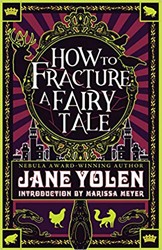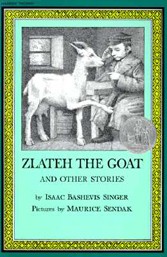There is a certain kind of story told on lazy Saturday afternoons at Jewish summer camp, when normal activities are on pause — The Fools of Chelm, Zlateh the Goat, tales of the Baal Shem Tov — sweet, if sentimental, with clear, moral lessons to impress upon the young.
This is roughly how I approached The Podolian Nights, by Nachman of Bratslav newly translated from the Yiddish and Hebrew by Robert Adler Peckerar and Jordan Finkin, only to find a mystifying collection that defies as it transcends expectation.
Nachman of Bratslav, the great-grandson of the Baal Shem Tov, was a Hasidic leader in his own right and founder of the Breslov sect. Nachman told these stories from the wake of his son’s death in 1806 until 1810, months before he himself succumbed to tuberculosis at the age of thirty-eight.
Adam Kirsch writes in his wonderful introduction: “To read Nachman’s tales is to enter a world of elusive meanings, where the only thing certain is that the world as we know it is deeply broken.”
These fantastical nineteenth-century tales hold up an uncanny mirror. “Of a Master of Prayer” centers on an isolationist country in which “money is the sole purpose of life.” In “Of a Humble King’s Portrait” the “country was full of lies and deception.” There are pages and pages of kings, kings as God, kings as power figures, humble or wise, greedy or foolish. Even misogyny is trotted out: “The female mind is flighty and women are incapable of restraint.”
Tempting as it may be to read these stories as a map out of our current moment, there is no straightforward path. As Nachman posits in his self-proclaimed masterpiece, “Of Seven Beggars”, perhaps “Faith, Reverence, Humility, and Truth,” will lead the way, but then again, couldn’t religious rigidity lead to moral descent?
The collection is remarkable in its peripatetic sprawl. Unlike many Yiddish folk tales, these stories traverse lands, islands, and unnamed countries, reflecting the shifting geo-politics of the time, particularly along the Ukrainian border. The Polish province Podolia, in which Nachman was born, was split by the Russian and Austrian Empires during his lifetime.
In addition, Nachman’s tales are surprisingly porous to influence beyond the insular shtetl world. One can feel imprints of classic Grimms fairytales, with sleep-inducing apples and lost children in the forest.There is also an unmistakable nod to 1001 Arabian Nights, so much so that Peckerar and Finkin pay it homage with their title choice, The Podolian Nights.
Nothing is as it seems. Princesses are often pawns, but sometimes they go incognito as gender-bending pirates. In “Of a Humble King’s Portrait,” the humble king shrinks in the presence of praise until he is invisible — and this is the likeness to render. In “Of A Rabbi and His Only Son,” a rabbi is duped by a demon, with a clear message to esteem the tzaddik above all. But as Kirsch points out, what kind of world are we living in when we can’t tell the difference between an imposter and the authentic article?
At the time, Nachman said, “ ‘The world says that fabulous tales may put you to sleep, but I say that tales can wake people up.’ ” And so, the collection serves as a wake-up call. We are lost. We have gone astray. Like the central tenet of kabbalah, the universe is a shattered vessel, dispersed, cast about in a tempest. If we’re to have any hope of repair, we must gather ourselves, collect the flickering shards of humanity. We cannot do it alone.
That said, these thirteen stories should not be read all together. There is plenty of repetition, some clunky, graceless prose, long winded tangents, and redundancies. But if all stories contain patterns, patterns are particularly integral to the oral tradition, in which these narratives arose.
Instead, they are best experienced as they were intended, one at a time, as a wide-eyed child might beneath an overgrown maple atop a breezy hill during story time. Because, as the Talmud teaches and Nachman echoes, it is the little that holds a lot. Savor their strange, individual wonder. Stay with one beating question: “How could the world go on without a heart?”
Sara Lippmann is the author of the novel Lech and the story collections Doll Palace and Jerks. She is co-editor of Smashing the Tablets: Radical Retellings of the Hebrew Bible and co-founder of the Writing Co-lab, an online teaching cooperative based in Brooklyn. Her new novel, Hidden River, will be published in 2026.





